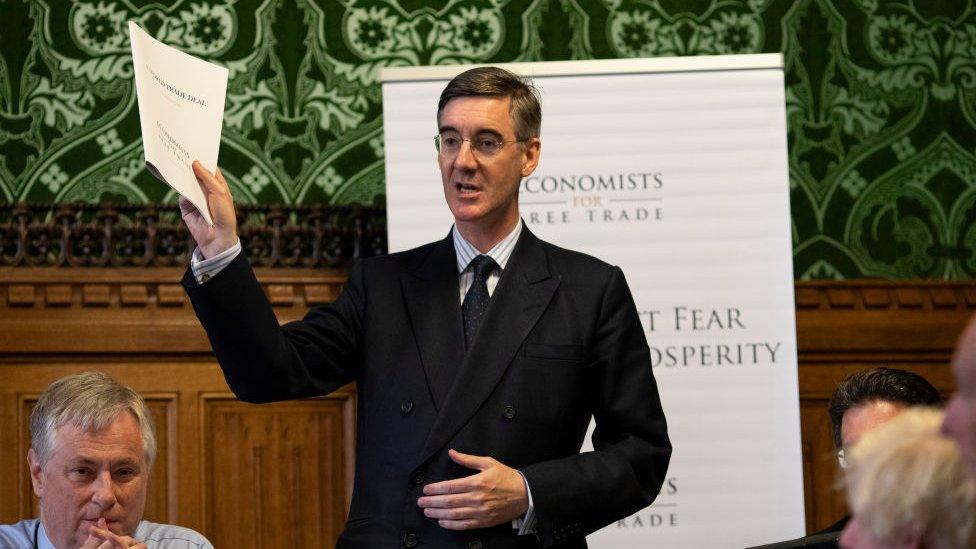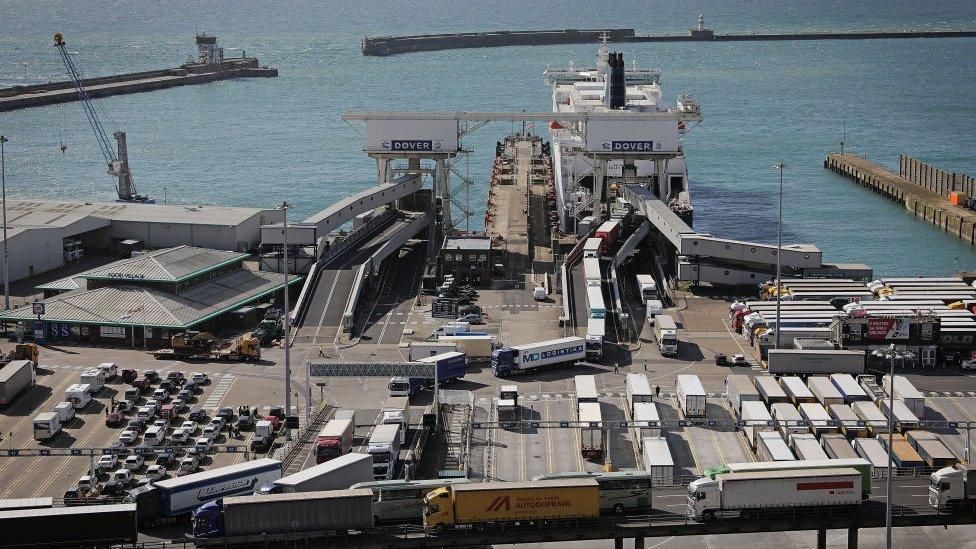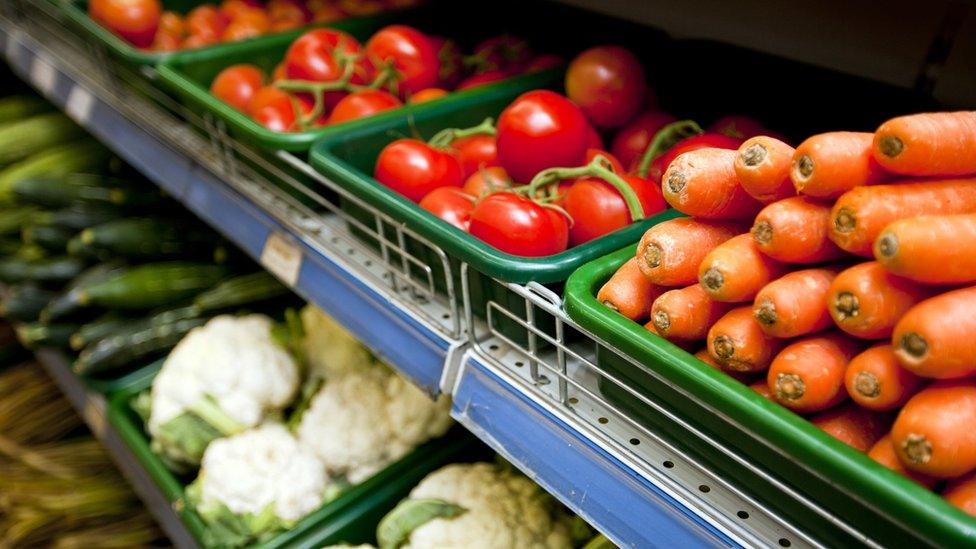Brexit: Do claims for a 'clean break' add up?
- Published

Jacob Rees-Mogg launching the report produced by Economists for Free Trade
A group of Tory MPs has endorsed a plan for a "clean break" from the European Union (EU), with the UK defaulting to World Trade Organization (WTO) rules when it leaves the EU. The proposals are contained in a report, external by the pressure group Economists for Free Trade (EFT).
Here's an initial look at a few of the claims they've made.
The report suggests the Treasury would receive about £80bn in extra revenue over the next 15 years, with an overall long-term gain for GDP of about 7%.
These figures are based on a number of calculations and assumptions, not all of which stand up to scrutiny.
Those who have modelled a clean Brexit properly, the EFT asserts, report long-term gains from free trade of 2%-4% of GDP. The report dismisses alternative modelling - done by the Treasury and by Whitehall's Cross Departmental Brexit Analysis - which arrived at very different conclusions.
But that is part of the problem. The EFT are convinced that they are the only people who have modelled the data correctly - even though theirs is a minority view.
"The vast majority of economists think it will be different," says Prof Alan Winters, director of the UK Trade Policy Observatory at the University of Sussex.
"Because a hard Brexit will cut trade with the EU, which is by far our largest trading partner, significantly."
Chequers plan 'worse than status quo'
What is the 'no deal' WTO option?
Last year, external the UK exported almost £274bn in goods and services to the EU, compared with £112bn to the US. When it comes to imports, the UK imported £341bn in goods and services from the EU and £70bn from the US.
For those who love the detail, here, external is one example of economists who criticise the EFT's methodology.
Tory supporters of Brexit are, however, unbowed:
"Perhaps it's our fault," says leading Brexiteer Jacob Rees-Mogg, "by not putting the argument for a world trade deal earlier, we left the running to people who don't want us to leave the EU at all."
The EFT report also says the UK would no longer have to pay a net amount of £12bn to the EU every year, although that figure appears to be slightly inflated.
According to the Treasury , externalnet payments to the EU amounted to £9.6bn in 2016 and £8.9bn in 2017. Forecasts over the next five years suggest that - if the UK were to stay in the EU - net payments to the EU would rise to roughly £11bn a year.
The EFT report goes on to suggest that the UK could choose to withhold "most or all" of the estimated £39bn financial settlement that the government has provisionally agreed to pay the EU as part of a Withdrawal Agreement.
In theory, the UK could do that, but it would probably prompt a legal challenge from the EU, and it would certainly damage relations severely at a time when - as the EFT report suggests - the government would be looking for co-operation in a whole series of policy areas.
The report suggests that concern about congestion at UK borders after Brexit has been hugely inflated.
It says only 4% of goods arriving in the UK from non-EU countries are subject to checks, and it suggests that trade with the EU in future could therefore be almost as seamless as it is now.
It's correct that very few physical or documentary checks are carried out on non-EU goods. But evidence given to the Home Affairs Select Committee suggests that things are rather more complicated than that.
If a lorry arrives at Dover, for example, from a non-EU country, it is usually delayed by 60 to 90 minutes even if no checks are made. The UK could choose to speed up that process and abolish many checks, but there would still be far more checks on UK goods being exported to the EU via Dover.

Lorries from outside the EU have to wait up to 90 minutes even if no checks are made
There would also be further complications for UK exports. Once the UK is designated as a third country by the EU, all UK exports of animal origin would only be able to enter EU territory via a veterinary border inspection post, where there are often time-consuming physical inspections as well as documentary checks.
Neither the Eurotunnel nor the Calais port is currently designated as a veterinary border inspection post.
The EFT report says that under WTO rules sanitary and phytosanitary measures (ie safety checks on food) can't be used as a "surreptitious means of inhibiting cross-border trade". This is true, but that does not erase what are known as non-tariff-barriers entirely, it simply reduces inspections where possible.
"The only countries that have managed to remove the need for health checks on food being exported to the EU," says Sam Lowe of the Centre for European Reform, "are the European Economic Area members and Switzerland. They have not only implemented EU rules in this area domestically, they also apply EU checks on all imports of animal origin entering from the rest of the world."
Food prices
The EFT report also suggests lifting tariffs (or import charges) on imported goods to make prices cheaper. It recognises that if you do that for one country, you have to do it for every country, under WTO rules.
If tariffs were removed for all agricultural produce, cheap imports would flood in and food prices would fall - but the UK farming industry could be decimated.

The report claims lifting some tariffs could reduce food prices
So, the report says, that "perhaps the most attractive goods to target" might be ones that we don't produce in the UK at all. It mentions oranges as one example, but it would be a pretty limited number of goods.
Again, others are extremely sceptical about the EFT's policy proposals.
According to a report published earlier this year by the House of Lords European Union Committee, "EU food imports cannot easily be replaced by either producing more in the UK or importing more from non-EU countries".
The Lords report forecast that food prices were likely to rise without a Brexit deal.

